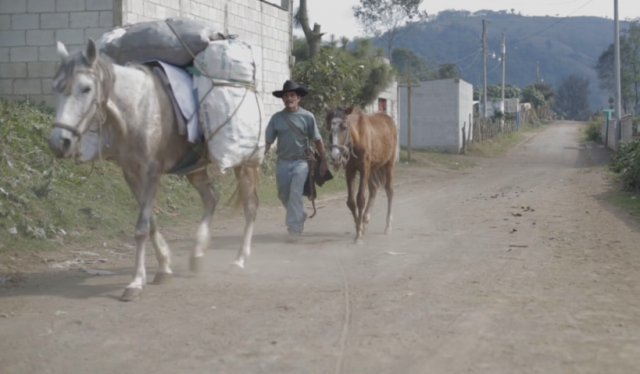
From First World to Third World: How 2 Veterinarians Are Making a Difference
The veterinarians of FullBucket started out with a passion for probiotics—but a volunteer trip led them to improve equine nutrition around the world.
Things were going pretty well for veterinarians Dr. Keith Latson and Dr. Rob Franklin. Their FullBucket probiotic supplements for sporthorses were starting to become successful and had been picked up by several big clinics. As they were wondering about the next steps to take for their practice, they got an email from the Equitarian Initiative, a nonprofit that sends volunteer veterinarians to third-world countries to care for working equines.
It was a leap of faith, but also a no-brainer. Dr. Franklin canceled his vacation plans, and the two flew down for their first volunteering trip to a remote village in Mexico—unaware of just how much that first trip would change both their lives and their business.
“It was a level of poverty that I had never fathomed before,” remembers Dr. Latson.
Local villagers, who used their horses and donkeys for everything from hauling firewood and crops to bringing their families to church, brought their equines to the town’s soccer field, which had transformed into a makeshift clinic with different veterinary specialists at different stations. The services they needed were basic, but taken to an extreme. Many of the equine patients had a body score of 1 on the Henneke Body Scale.
Dr. Latson remembers the most striking example from their first “giving trip”: “There was an elderly man whose son led the donkey for about two hours while the man rode up. I thought, ‘That’s nice, he’s leading the donkey for his dad.’ But it turned out the man was actually an amputee. The donkey was his wheelchair.”
That image hit home for Dr. Latson. “Their level of dependence on their animals is as great or greater than our dependence on vehicles—tractors, commuter cars—their animals are everything,” he says.
FullBucket from fullbucket on Vimeo.
Dr. Franklin continues, “[At the clinic] We saw saddlers fitting old broken saddles, vets working on saddle sores, dentists doing teeth—but all these animals were skin and bone. Nutrition was the missing station. We jumped in with both feet.”
Buy One, Give One
Now, Dr. Latson, Dr. Franklin, and their partner Robo Hendrickson work together to combat equine malnutrition from several angles. They go on “giving trips” to provide volunteer veterinary care in third-world countries twice a year, and for every bucket sold of their probiotic supplement for sporthorses, they give a bucket of supplements free to horses in need. (The supplements are not the same—the FullBucket “giving” product is formulated with micronutrients, amino acids and vitamins to treat malnutrition.)
“They’re keen to utilize the supplements,” says Dr. Franklin, “We produce it in their country and so that helps the economy. It’s made there and transported locally. We use the supplement as a supplement to our veterinary care.”
Teaching and Learning
However, education is probably the most valuable service on their giving trips—and it goes both ways.
“The more complex the problem, the more complex the solution,” says Dr. Franklin.
“The more you go down there, the more you understand how these animals are used. You might think, ‘Surely you can afford to spend an extra 50 cents or a dollar on your horse—it’s going to work harder for you.’ But then you realize these people provide for their whole families on a dollar a day. And if you treat an animal for a saddle sore and say they have to heal for 30 days, that means those people have to haul firewood on their own backs, or their children’s, for 30 days.”
And the FullBucket team doesn’t only reach out to individual horse owners—they provide continuing education to local vets in the areas they visit. With each trip, they learn more about the community’s needs, and trust is established between FullBucket, local horse owners, and local veterinarians. It’s a slow process, but a promising one for lasting change.
“With every human interaction because of a horse, there was something learned on both sides,” says Dr. Latson.
Dr. Franklin and a group of volunteer veterinarians, vet techs and students from Texas A&M set off for their latest giving trip this weekend to Guatemala, which will also include continuing education on Ultrasound for local veterinarians. To follow their journey, check out their Facebook and Twitter updates along the way.







Leave a Comment